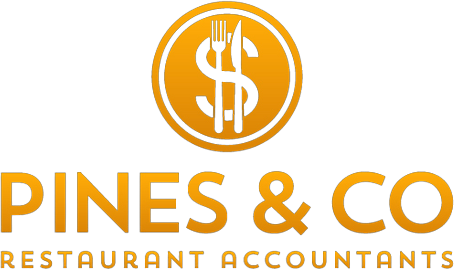Effective internal controls are crucial for ensuring the accuracy, reliability, and integrity of financial information in the restaurant industry. These controls help safeguard assets, prevent fraud, and promote operational efficiency. In this blog post, we will explore the significance of internal controls in restaurant accounting and provide examples of five different processes that restaurants can implement to protect their financial well-being. At Pines & Co, we offer comprehensive restaurant accounting services to help businesses establish robust internal controls and ensure financial security.
- Segregation of Duties: One essential internal control process is the segregation of duties, which involves dividing responsibilities among different individuals to minimize the risk of fraud or error. For example, in a restaurant, the person handling cash should be separate from the one responsible for recording transactions in the accounting system. By separating duties, restaurants can create checks and balances, reducing the likelihood of financial irregularities.
- Regular Financial Reconciliations: Performing regular reconciliations is a critical internal control process. It involves comparing financial records, such as bank statements and sales reports, to identify discrepancies or errors. Restaurants should reconcile their cash registers, bank accounts, and credit card transactions on a frequent basis. This process helps identify any discrepancies promptly, ensuring accurate financial reporting and reducing the risk of theft or misappropriation of funds.
- Inventory Management and Tracking: Effective inventory management is another vital internal control process for restaurants. By implementing robust inventory tracking systems, businesses can ensure accurate recording of food and beverage costs, monitor stock levels, and detect any instances of theft or waste. Regular physical inventory counts, coupled with reconciliations against purchase records, enable businesses to identify discrepancies and take corrective actions promptly.
- Documentation and Approval Processes: Establishing proper documentation and approval processes helps maintain transparency and accountability in restaurant accounting. This involves implementing procedures for documenting financial transactions, such as invoices, purchase orders, and receipts, and requiring appropriate approvals for expenses. By adhering to these processes, restaurants can ensure that expenditures are valid, authorized, and properly recorded, minimizing the risk of unauthorized or fraudulent expenses.
- Monitoring and Internal Audits: Regular monitoring and internal audits are essential internal control processes for restaurants. This involves conducting periodic reviews of financial records, analyzing trends, and performing risk assessments. Internal audits help identify potential control weaknesses or irregularities, allowing businesses to address them proactively. Monitoring financial performance and internal controls on an ongoing basis ensures compliance, detects anomalies, and supports the overall financial health of the restaurant.
Implementing robust internal controls is essential for the financial well-being of restaurants. By adopting processes such as segregating duties, conducting regular reconciliations, managing inventory effectively, establishing documentation and approval procedures, and conducting internal audits, businesses can safeguard their finances, reduce the risk of fraud, and promote operational efficiency. At Pines & Co, our comprehensive restaurant accounting services encompass the establishment and monitoring of internal controls, providing you with peace of mind and ensuring the integrity of your financial operations. Contact us today to learn more about how our restaurant accounting services can support your business’s internal control processes and financial security.


